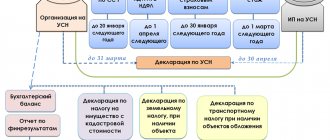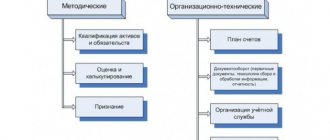On January 1, 2021, the write-off of some debts of individuals that were recognized as hopeless for collection began. The tax amnesty bill was developed and adopted in record time. The President's initiative was voiced at a press conference on December 14, 2021, and just two weeks later, Law No. 436-FZ was officially published.
For what taxes will debts be written off?
Let's consider the list of main taxes for which arrears are expected to be written off in 2021.
Ordinary citizen (individual)
- Transport tax All debt that arose before January 1, 2015, as well as penalties accrued on it before the day the decision was made to write off the debt, is subject to write-off
- Land tax
- Property tax
Individual entrepreneur (IP)
- Tax under the simplified tax system, UTII, PSN, personal income tax. The debt for all taxes paid in connection with the application of tax regimes (single tax under the simplified tax system, UTII, PSN, as well as personal income tax) that arose before January 1, 2015, as well as penalties and fines with from the moment of occurrence until the day the decision to write off is made
- Insurance premiums
Contributions for compulsory insurance payable to the Pension Fund, FFOMS, Social Insurance Fund, arising for the period before January 1, 2021
Important: Land tax benefits have been introduced for pensioners at the federal level in the amount of 600 sq.m. This means that the tax will not be collected from the pensioner’s 6 acres of land, which will significantly ease the tax burden on this category of persons.
Let us consider in more detail the procedure and features of debt write-off for each of the above categories of persons.
Expert opinions
Tax amnesty is successfully practiced in many countries. The key message of such an action is to write off tax debts and establish contacts between all participants in the “tax” process.
Table 3. Advantages and disadvantages of amnesty
| pros | Minuses |
| Reduces the workload of Federal Tax Service employees in terms of administering the resulting debts and reduces the time spent on document flow. | In connection with the introduction of benefits for 6 acres from the beginning of 2021, officials will need to cover the resulting shortfall in municipal budget revenues using funds taken from the federal budget. |
| Helps improve the performance of small businesses faced with paying large insurance bills. | The amnesty does not eliminate the general tendency of the taxation system to become bureaucratic. |
| Increases tax discipline. Subjects who were previously unable to pay their bills are returning to the fold of the law thanks to debt forgiveness. | The attractiveness of debt write-off may also provoke further irresponsible behavior of entities counting on the repeated forgiveness of new debts. |
| Partially improves the financial condition of citizens, especially those falling under preferential categories. | Resetting debts to zero may cause a negative reaction from conscientious taxpayers who pay all bills on time. Such an action is fraught with an increase in the number of debtors. |
One of the weaknesses of the amnesty is the “undermining” of the moral foundations of honest taxpayers
From the point of view of citizens, a tax amnesty is always welcome, since it is an official and painless way to get rid of accumulated obligations. From the point of view of the administrative apparatus, such actions also receive approval in most cases. Considering that tax authorities are “bound” by debt collection deadlines prescribed at the legislative level, they are obliged to demand that taxpayers pay for outstanding bills. The initiative, which will be introduced in 2021, will make it possible to eliminate the resulting arrears with the least amount of paperwork and start relations with citizens with a clean slate.
Tax amnesty for individual entrepreneurs
For individual entrepreneurs with tax arrears that arose before January 1, 2015, the entire amount of unpaid mandatory payments will be subject to write-off, regardless of its size. However, the legislator limited the list of taxes for which debt “forgiveness” is possible.
So, not included in this list:
- Mineral extraction tax.
- Excise taxes.
VAT paid in connection with the movement of goods across the border of the Russian Federation.
Also, along with the tax, the entire amount of penalties and interest accrued in connection with its non-payment, starting from the period of formation until the tax inspectorate makes a decision to write off the debt, will be written off.
In addition to taxes, it is planned to forgive individual entrepreneurs in terms of unpaid insurance premiums accrued for the period until January 2021, provided that the individual entrepreneur did not conduct any activity during this time and did not submit reports, and therefore insurance premiums were accrued to him in the maximum amount, according to Part 11 Art. 14 of the law of July 24, 2009 No. 212-FZ.
Important: write-off of contributions is possible only if the individual entrepreneur did not conduct business, and therefore the debt on fixed payments, for example for the 4th quarter of 2021, will not be written off to the entrepreneur.
Summary
In accordance with the document, arrears accrued by citizens as of January 1, 2015 are recognized as hopeless and subject to write-off, according to:
- on transport tax;
- property tax for individuals;
- land tax.
Penalties accrued on the above-mentioned debts are also written off.
According to the Federal Tax Service, citizens' debt for these taxes as of January 1, 2015 amounted to 103 billion rubles; later, part of this money was returned.
Similarly, debts of individual entrepreneurs and those who have lost their individual entrepreneur status should be written off (with the exception of mineral extraction tax, excise taxes and taxes payable in connection with the movement of goods across the border of the Russian Federation).
As part of the law on “tax amnesty” in 2021, arrears on insurance contributions to state extra-budgetary funds for settlement (reporting) periods that expired before January 1, 2021 will also be recognized as hopeless and subject to write-off in the amount determined in accordance with Part 11 of Art. 14 Federal Law of July 24, 2009 No. 212-FZ “On insurance premiums...”.
Penalties and fines accrued for these arrears will also be written off. The “tax amnesty” in 2021 will affect:
- individual entrepreneurs, as well as individuals who have lost their individual entrepreneur status;
- lawyers;
- private practicing notaries;
- other persons engaged in private practice in the manner prescribed by the laws of the Russian Federation.
The tax service makes the decision to recognize a debt as bad and write it off independently, without the participation of individuals and individual entrepreneurs, based on data received from the Pension Fund of the Russian Federation and the Social Insurance Fund.
How much does it cost to open a sole proprietorship? All about the state duty for registering individual entrepreneurs in 2018
Tax amnesty for ordinary citizens
According to the changes made to the Tax Code of the Russian Federation in 2021, bad debts will be written off from individuals for:
- Transport, land and property taxes incurred for periods up to January 1, 2015 inclusive, as well as penalties accrued on the specified arrears from the period of formation of the debt until the tax authority makes a decision. In this case, the size of the arrears, the reason for its occurrence, and also the financial situation of the debtor. According to the law, the entire amount of this debt will be considered uncollectible and subject to unilateral write-off by the tax authority.
- Personal income tax, subject to payment in connection with the receipt by a citizen of income on which the employer has not calculated and paid tax to the budget.
This situation affects cases where a citizen received income from an employer, from which personal income tax was not calculated and paid to the budget.
Let us recall that the employer is a tax agent in relation to his employee, and therefore he is obliged to independently calculate and transfer to the budget the amount of personal income tax, which, in turn, is obliged to report on the certificate in Form 2-NDFL.
If for some reason the employer cannot transfer personal income tax to the budget, he must notify the employee and the tax authority about this. In this case, the responsibility to pay tax falls on the shoulders of the employee.
According to the tax amnesty law, amounts of personal income tax debt resulting from the situation described above are subject to write-off for the period from January 2015 to January 2021.
Also, as in the case of individual entrepreneurs, the legislator limited the list of income subject to write-off.
Where to apply to write off arrears?
READ ON THE TOPIC:
The movable property tax will return in 2021.
Entrepreneurs and individuals will not need a special application to the tax office.
Tax debt write-off decision
will decide
independently
based on your own data. At the same time, the inspectorate is not obliged to notify taxpayers.
You can find out whether the debt of an entrepreneur or individual is included in the amnesty by checking with the tax authority.
Let us also keep in mind that the amnesty applies only to those persons who have accumulated debt as of the specified date; all those entrepreneurs and individuals who paid taxes on time cannot claim their refund from the budget.
Debts for which income cannot be written off?
The list of income not subject to write-off will be listed in paragraph 72 of Art. 217 Tax Code of the Russian Federation. The specified income will include the citizen’s profit received:
- in the form of remuneration for the performance of labor or other duties, performance of work, provision of services;
- in the form of dividends and interest;
- in the form of material benefit, determined in accordance with Art. 212 Tax Code of the Russian Federation;
- in kind, determined in accordance with Art. 211 of the Tax Code of the Russian Federation, including gifts received by taxpayers from organizations or individual entrepreneurs;
- in the form of winnings and prizes received in competitions, games and other events.
In this case, we are talking about debt resulting from the write-off of citizens' debts by organizations - for example, telecom operators and banks, clarifies the head of the legal department of HEADSConsulting Diana Maklozyan. According to experts, this amount is about 22 billion rubles.
How and when will debts be written off?
Debt write-offs from citizens and individual entrepreneurs will be carried out unilaterally, that is, these persons will not submit any documents or statements to the tax authorities!
The law does not establish the obligation to notify individual entrepreneurs and citizens about the written off debt and its amount. It is assumed that the interested person will have to independently contact the tax authorities to clarify the amount of arrears and the amount of debt written off.
Limitation period and liability
In connection with some features of the 2021 amnesty, you should understand the legal terminology.
The Tax Code of the Russian Federation prescribes both the statute of limitations and the time limit for holding entities accountable for paying taxes and fees.
Table 2. Limitation period
| Organizations and individual entrepreneurs | Individuals |
| If the tax has not been paid within the period established by law, the Federal Tax Service has the right to collect it in an indisputable manner. Such a decision must be made within 2 months from the first day of late payment. After 2 months from the specified date, tax authorities can demand payment of the debt only through the court. The application must be submitted within 6 months from the date of arrears. | The inspection representative has the right to go to court within 6 months from the date of expiration of the payment deadline if the total amount of the debt exceeds 3,000 rubles. |
The statute of limitations and the period of prosecution for an offense are different concepts.
After 3 years from the date the arrears arose or from the day following the last day of the tax period, the entity cannot be held liable for violation of payment deadlines or non-payment of taxes, penalties or fines.
Bad debts before the introduction of the amnesty could only be written off in court
In some cases, debt collection continues after 3 years, since the court has the right to renew this period. Every year, such debts accumulated and hung like a dead weight both on the taxpayer and among the work files of the bailiffs. Amnesty 2021 will help correct this situation.
When will it take effect?
The authors of the law on writing off the debts of individuals and individual entrepreneurs in 2021 were the State Duma vice-speakers: Sergei Neverov, Pyotr Tolstoy and Alexander Zhukov, as well as the head of the budget committee Andrei Makarov and committee member Andrei Isaev.
According to Andrei Makarov, the 2021 “tax amnesty” will take effect on January 1. Now the official text of the document should be published by Rossiyskaya Gazeta, after which it will be included in the reference and legal system Consultant Plus, where it will be enriched with expert comments.
⇐Subscribe to our channel in
Yandex.Zen !⇒









